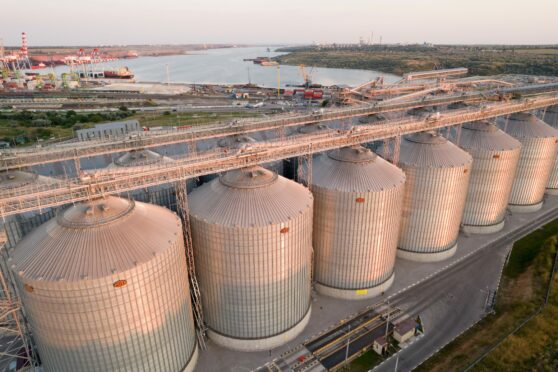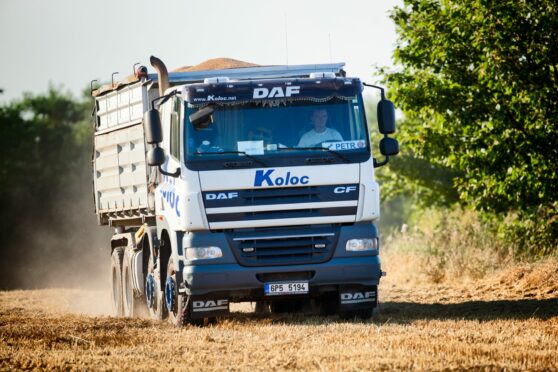Hundreds of lorries loaded with last year’s Ukrainian grain harvest have been stuck in week-long queues as they try to cross the border between Ukraine and Europe.
The shipping ports in Ukraine are closed, so some farmers have resorted to sending their grain in trucks to get cashflow and to ensure they have enough storage space for this year’s harvest.
Crops and livestock farmer Kees Huizinga farms 15,000 hectares at Cherkasy, 200km south of Kyiv. He is sending his three trucks loaded with corn across the road border into Romania, but he has been met with heavy bureaucracy.
“As well as waiting five and more days in the queue to get into Romania, we have to wait days at the border on the other side to return home,” said Kees.
“The situation is crazy. People across the world are going to starve if we cannot get
Ukrainian grain to them, yet our trucks are being held up due to paperwork, some of which is not even essential.
“There are 25km of trucks on the Ukraine side waiting to cross into Poland and the drivers are waiting five to six days there. If farmers start moving larger volumes of grain towards Poland then these queues will easily reach 100km long.”
He has called for “green corridors” to be established to allow the grain to move quickly to customers.
Truck driver Andriy, who works for Kees, has made only a few crossings during the past month as he has spent most of his time sitting at the border with a full load of grain.
“Andriy sat an additional day at the border because they were demanding an extra document from a veterinary inspector. This is the fourth time during the past 30 days that he has delivered corn to Romania, and they never asked for that document before,” said Kees.
“In a few weeks’ time farmers in Romania, as well as other countries, will start harvesting their grain. If this mess is not sorted out their logistics will not be able to handle additional crops on top of their own.”
Prior to the war, Ukraine was seen as the world’s bread basket, exporting 4.5 million tonnes of agricultural produce per month through its ports. The UN has said Russia’s invasion of Ukraine could cause a global food crisis that may last for years.
UN Secretary-General Antonio Guterres warned the war had worsened food insecurity in poorer nations due to rising prices and said some countries could face long-term famines if Ukraine’s exports are not restored to pre-war levels.
Mr Guterres said the conflict combined with climate change “threatens to tip tens of millions of people over the edge into food insecurity followed by malnutrition, mass hunger and famine.”
He said: “There is enough food in our world now if we act together. But unless we solve this problem today, we face the spectre of global food shortage in the coming months.”


